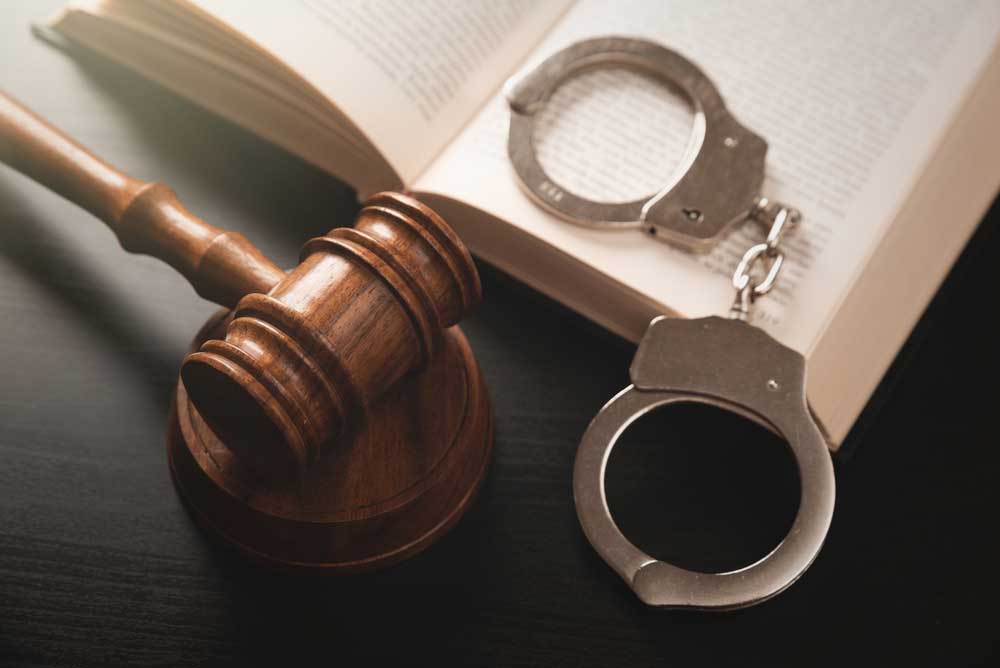Revealing the Competence and Tasks of an Appellate Lawyer
In the elaborate world of appellate legislation, the role of a lawyer takes on a distinctive type requiring specialized abilities and knowledge. An appellate lawyer is tasked with a myriad of duties that go beyond the typical methods of litigation. From diligently crafting influential legal briefs to sharpening the art of oral advocacy, their payments are essential fit the end result of instances at the appellate level. As we explore the multifaceted globe of appellate regulation, a closer examination of the essential skills and tasks of these professionals unveils an interesting landscape that demands both accuracy and calculated acumen to navigate effectively.
The Role of an Appellate Legal Expert
In the realm of appellate legislation, the role of an appellate attorney is crucial in browsing the intricacies of higher court process and promoting for customers seeking appellate evaluation. Appellate attorneys concentrate on dealing with instances on allure, where the emphasis shifts from truths and evidence provided at test to procedural issues and lawful debates. Their primary obligation is to assess trial records, recognize legal errors, carry out lawful study, draft persuasive briefs, and present dental debates before appellate courts.
In addition, appellate lawful professionals serve as strategic advisors to test attorneys, directing them on preserving lawful problems for potential allure and creating strong lawful debates throughout the test process - post conviction lawyer. Additionally, appellate lawyers play a crucial role in shaping the law by supporting for lawful principles that can set precedents impacting future instances.
Essential Abilities for Appellate Job
Effectiveness in legal analysis and argumentation is basic for success in appellate work. Appellate attorneys need to have outstanding research study skills to delve into instance legislation, statutes, and legal criteria to create convincing legal disagreements. They must have a deep understanding of procedural rules and court guidelines to browse the intricacies of the appellate process efficiently. Creating skills are critical, as appellate work calls for composing clear, succinct, and compelling lawful briefs that articulate intricate lawful issues persuasively. Focus to detail is crucial in appellate job, as also minor mistakes can have significant effects on the result of a case.
Moreover, critical assuming skills are important for appellate lawful specialists to evaluate legal approaches, expect counterarguments, and identify weak points in rival guidance's placements. In essence, a successful appellate lawful expert has a special blend of logical, research study, writing, and campaigning for abilities to excel in the appellate sector.
Crafting Persuasive Legal Briefs
Offered the foundational importance of extraordinary research abilities and a deep understanding of step-by-step guidelines for success in appellate job, crafting convincing legal briefs stands as an important task for appellate attorneys. Lawful briefs serve as the primary tool for offering debates and legal evaluation to appellate courts - appeal lawyers carrolton texas. To craft a convincing lawful quick, appellate specialists have to meticulously structure their arguments, point out pertinent lawful authority, and prepare for and respond to prospective counterarguments
Appellate lawful professionals have to demonstrate an eager ability to boil down complex lawful ideas right into engaging and concise debates that support their client's placement. Mastering the art of crafting influential legal briefs is necessary for appellate legal experts looking for success in advocating for their clients prior to appellate courts.

Preparing for Dental Arguments
A crucial element of the appellate procedure involves detailed preparation for offering oral disagreements on trial - post conviction lawyer. Preparing for oral debates requires a detailed understanding of the instance, familiarity with lawful criteria, and the ability to expect and respond to questions from the judges. Appellate lawyers should thoroughly assess the document, identify essential legal problems, and craft influential debates to support their client's position
Before the dental debate, attorneys should take part in moot court exercises to replicate the court experience and obtain responses on their presentation. This practice allows them to refine their disagreements, enhance their distribution, and boost their capacity to resolve tough inquiries effectively.

Browsing the Appeals Refine
Effectively navigating the appeals process requires a strategic understanding of step-by-step regulations and timelines Continued within the appellate court system. The procedure normally starts with filing a notice of allure within a defined timeframe after a final judgment is gotten in at the test court level (peoria illinois appeal attorneys). As soon as the notice of charm is submitted, the applicant has to then construct the document on allure, which includes appropriate papers, records, and shows from the trial court proceedings

Throughout this process, appellate legal professionals should stick to strict procedural guidelines and deadlines to ensure their arguments are heard and considered by the appellate court. By mastering these intricacies, lawyers can properly browse the charms process and advocate for their clients' interests.
Conclusion
To conclude, the proficiency and tasks of an appellate lawful specialist are critical in browsing the facility charms process. With important skills in crafting influential lawful briefs and getting ready for oral arguments, these specialists play an essential duty in promoting for clients in appellate court. By recognizing the subtleties of appellate work and possessing the essential skills, appellate attorneys are furnished to efficiently stand for clients in the appeals procedure.
Furthermore, appellate lawful experts serve as critical consultants to test lawyers, directing them on preserving lawful issues for possible charm and developing solid lawful disagreements throughout the trial procedure. Appellate lawful professionals have to possess remarkable study skills to dig into situation regulation, statutes, and lawful precedents to build persuasive legal debates.Given the fundamental significance of phenomenal research abilities and a deep understanding of step-by-step guidelines for success in appellate job, crafting persuasive legal briefs stands as a critical task for appellate lawful professionals. Grasping the art of crafting persuasive legal briefs is necessary for appellate lawful professionals looking for success in supporting for their clients before appellate courts.
Appellate lawful specialists must carefully assess the record, identify crucial lawful issues, and craft persuasive disagreements to sustain their customer's placement.